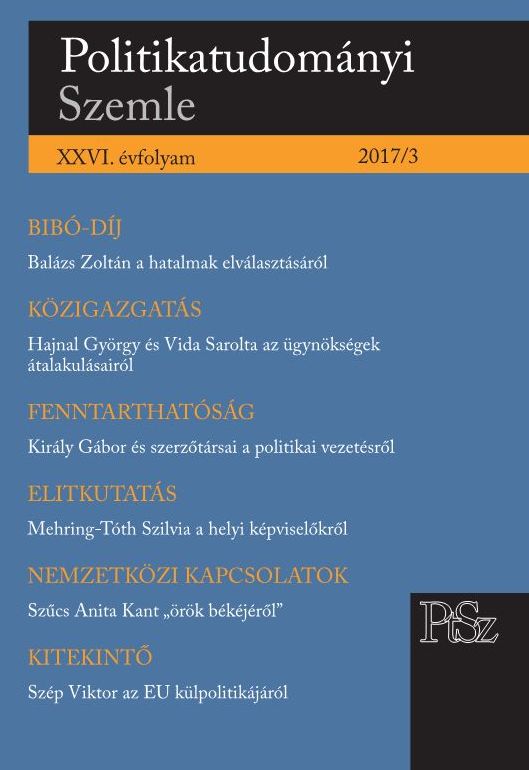Kant a nemzetközi rendről – „örök béke” vagy hosszú távú együttműködés?
Kant on international order – “Perpetual peace” or long-term cooperation?
Author(s): Anita SzűcsSubject(s): History and theory of political science
Published by: MTA Politikai Tudományi Intézete
Keywords: Immanuel Kant; liberal international order; international political theory; peace theories; liberalism
Summary/Abstract: Kant is a well appreciated theorist of International Relations, mainly because the liberal argument of the ”world order” stems from the Kantian concept of ”perpetual peace.” However, the interpretation of his philosophical legacy in the fi eld of this newly formed discipline is very controversial. Kant’s famous mature pamphlet, ”On Perpetual Peace” has been widely seen as advocating federalism, a world state and utopian pacifi sm. This study argues that instead of utopian, eternal peace Kant is primarily concerned with the roots and processes of long-term cooperation. Transcendental idealism explains the reality of international politics, which can be understood as an anarchic, competitive system where the natural state is war. Kant did not want to transcend the state system but to improve it. He shows how to subject international anarchy to law at the level of individuals, states and the international system. For him cooperation is determined by Reason, but at the same time states and human beings have free will to ignore the laws of cooperation. This study highlights how Reason can create long term cooperation in the anarchic international system.
Journal: Politikatudományi Szemle
- Issue Year: XXVI/2017
- Issue No: 3
- Page Range: 103-129
- Page Count: 27
- Language: Hungarian

